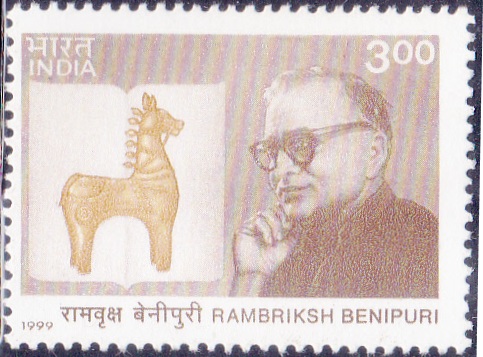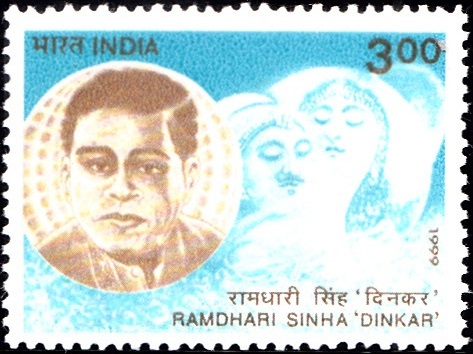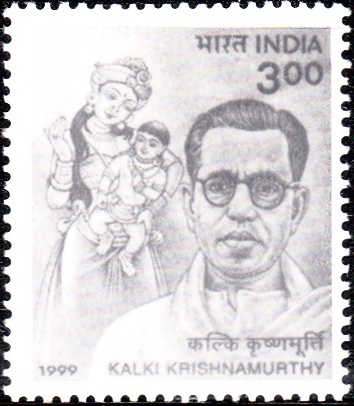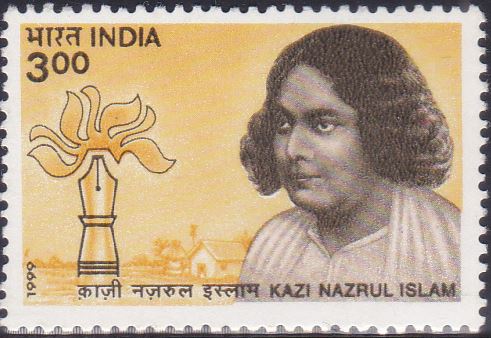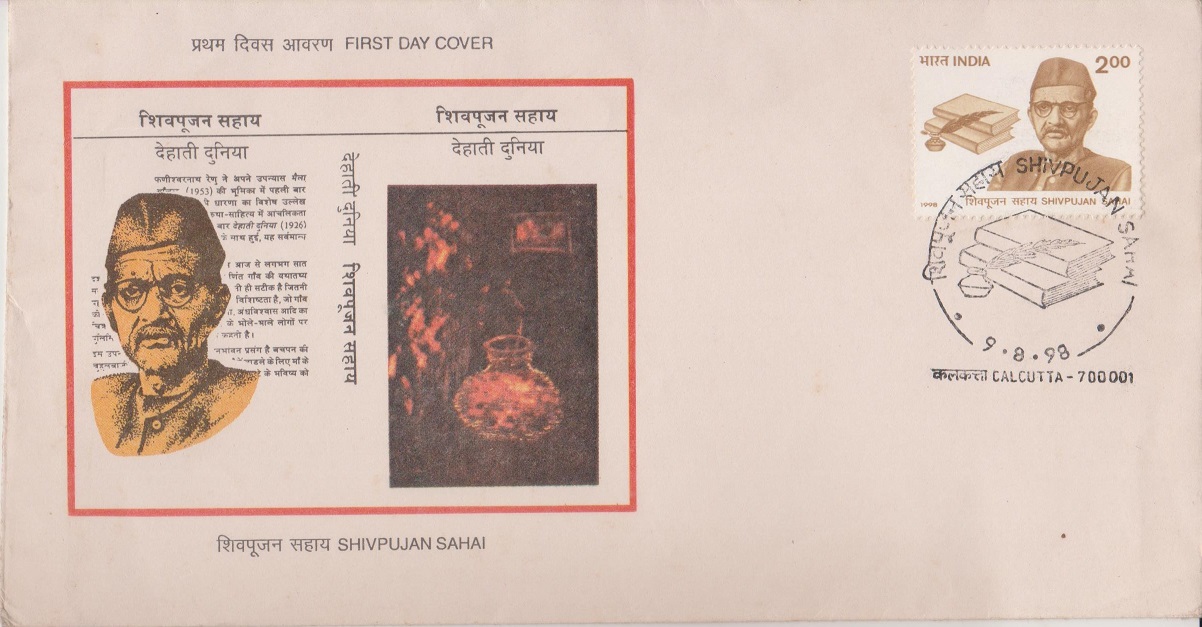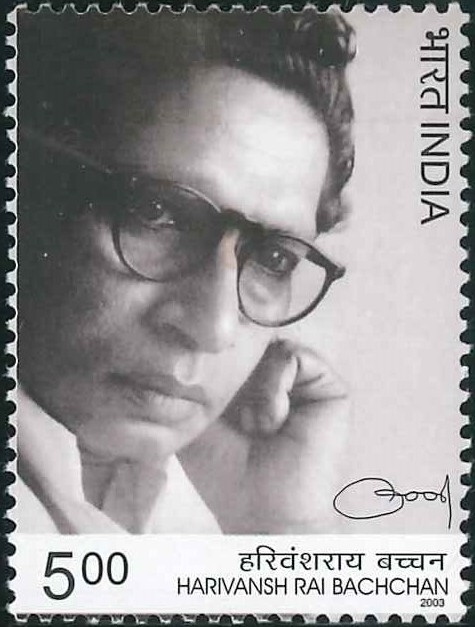
Harivansh Rai Bachchan
A commemorative postage stamp on the Birth Anniversary of Bachchan (Harivansh Rai Srivastava), a Hindi poet of the Nayi Kavita literary movement (romantic upsurge) and father of Amitabh Bachchan (Indian film actor):

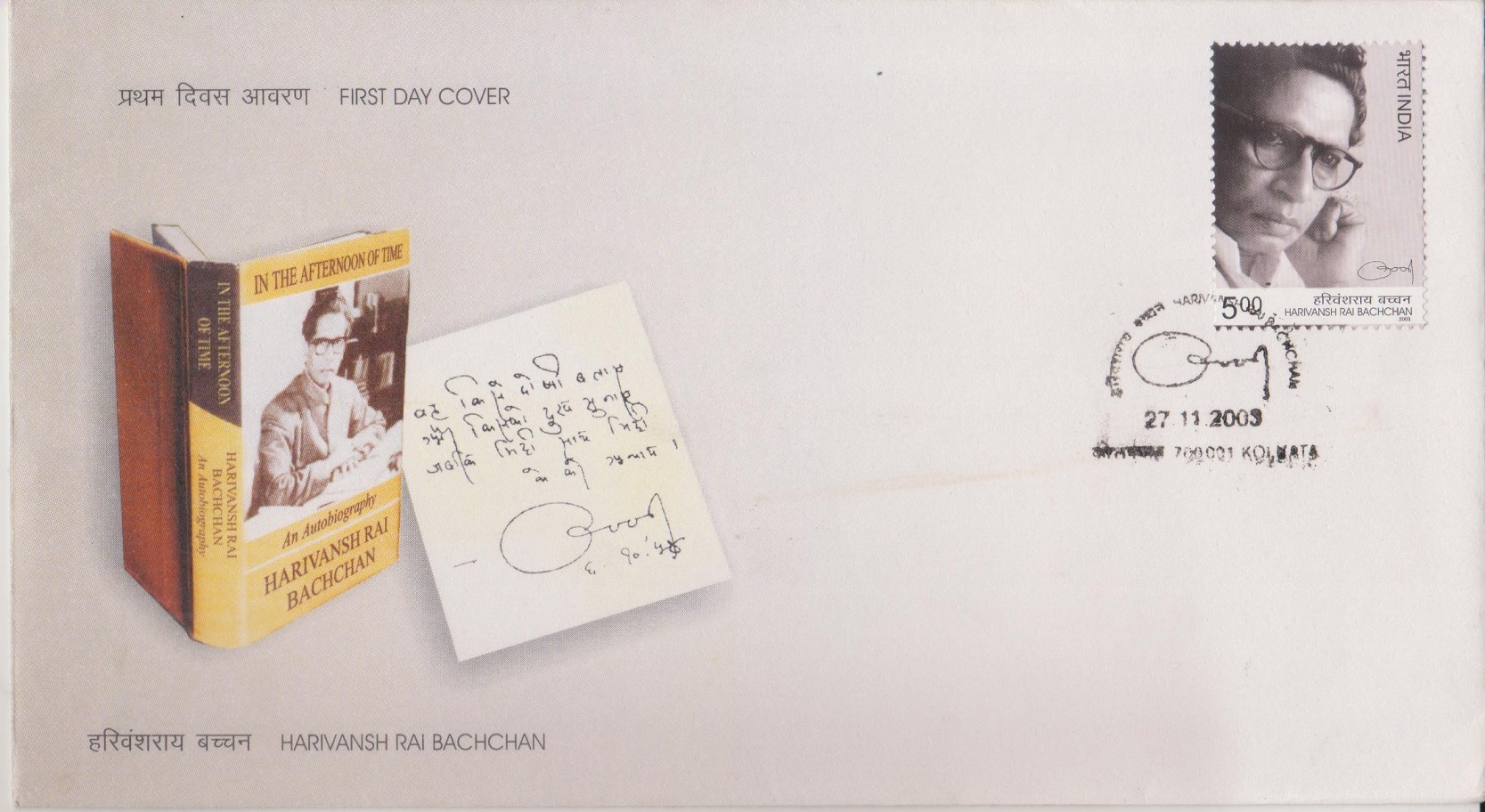 Issued by India
Issued by India
Issued on Nov 27, 2003
Issued for : Today his poetry and prose has almost become a subconscious part of India‘s Hindi knowing populace. The Department of Posts commemorates the life and the spirit of Harivansh Rai Bachchan.
Credits :
Stamp & FDC : Sankha Samanta, based on the material received from Shri Amitabh Bachchan.
Cancellation : Alka Sharma
Type : Stamp, Mint Condition
Colour : Two Colour
Denomination : 500 Paise
Overall Size : 2.90 x 3.91 cms.
Printing Size : 2.90 x 3.91 cms.
Perforation : 13.5 x 13.5
Paper : Matt Chromo
Print Quantity : 0.4 Million
Number of Stamps per sheet : 40
Printing Process : Photo Offset
Printer : Calcutta Security Printers Ltd.
Name : Harivansh Rai Srivastava Bachchan
Born on Nov 27, 1907 at Allahabad, Agra, British India [now in Uttar Pradesh]
Died on Jan 18, 2003 at Mumbai, Maharashtra, India
About :
- Born in the University town of Allahabad in Uttar Pradesh on 27th November, 1907, Dr. Harivansh Rai Bachchan‘s work was, like the confluence of the Ganga and the Yamuna Rivers at Allahabad, an admixture of sensibilities rooted in the soil of India overlaid with the study of literature in English. He was to follow up a Bachelor’s Degree with a Master’s in English Literature when he left the University of Allahabad to participate in the Civil Disobedience Movement in 1930.
- His first collection of Hindi verse, “Madhushala” penned in college, earned him instant recognition. Today it continues to remain one of the best known set of verses in Hindi Literature and its style, theme and diction make it one of his most outstanding works. It has been translated in English and many other languages.
- The memory of his first wife, Shyama, found expression in two volumes of poetry: “Nisha Nimantran“ and “Ekant Sangeet“. He returned to the University to obtain a Master’s Degree in English Literature & was then appointed Lecturer there in 1940.
- 1942 was another milestone which saw his marriage to Teji, from a reputed Sikh family, followed thereafter by the birth of their two sons, Amitabh and Ajitabh. In 1954 he went to England where he completed his doctoral studies, with a thesis on “W.B. Yeats and Occultism“ giving him a Ph.D. On returning to India he joined the All India Radio as a Hindi producer. Soon thereafter, Pandit Jawaharlal Nehru called him to Delhi to appoint him as an expert in Hindi in the Ministry of External Affairs. A decade later, the President of India nominated him as a member to the Rajya Sabha.
- Meanwhile, his literary output and commitments continued unabated, and honours and awards followed. In 1959, his poetry took him as a member of the Indian delegation to Belgium, France, Italy and England. His collection of poems entitled “Chausath Russi Kavitayen“ received the Soviet Land Nehru Award (1966). In 1967, he visited Russia, Mongolia, East Germany and Czechoslovakia on behalf of the Education Ministry. The following year he participated in the Afro Asian Writer’s Conference at Beirut.
- The Sahitya Akademi Award was given for his anthology of poems “Do Chattane“ (1968). He was honoured by the Sahitya Kala Parishad, Delhi. The title of “Sahitya Vachaspati“ was also bestowed on him (1969). At the Afro Asian Writers’ Conference in Delhi in 1970, he received the “Lotus Award“. His remarkable autobiography “Dashdwar Se Sopan Tak“ earned for him the “Saraswati Samman“. His autobiography in four parts is also known for its unusually forthright style and authenticity. His contribution to Hindi Literature was awarded by the Govt. of Uttar Pradesh with the “Yash Bharati“. The President of India conferred the “Padma Bhushan“ on him in 1976 : a just recognition of the richness he imparted to Hindi Literature from 1932 to 1995 with about 74 books and writings which ranged from poetry, drama, essays & translations to stories and books for children.
- Text : Sh. Amitabh Bachchan.


